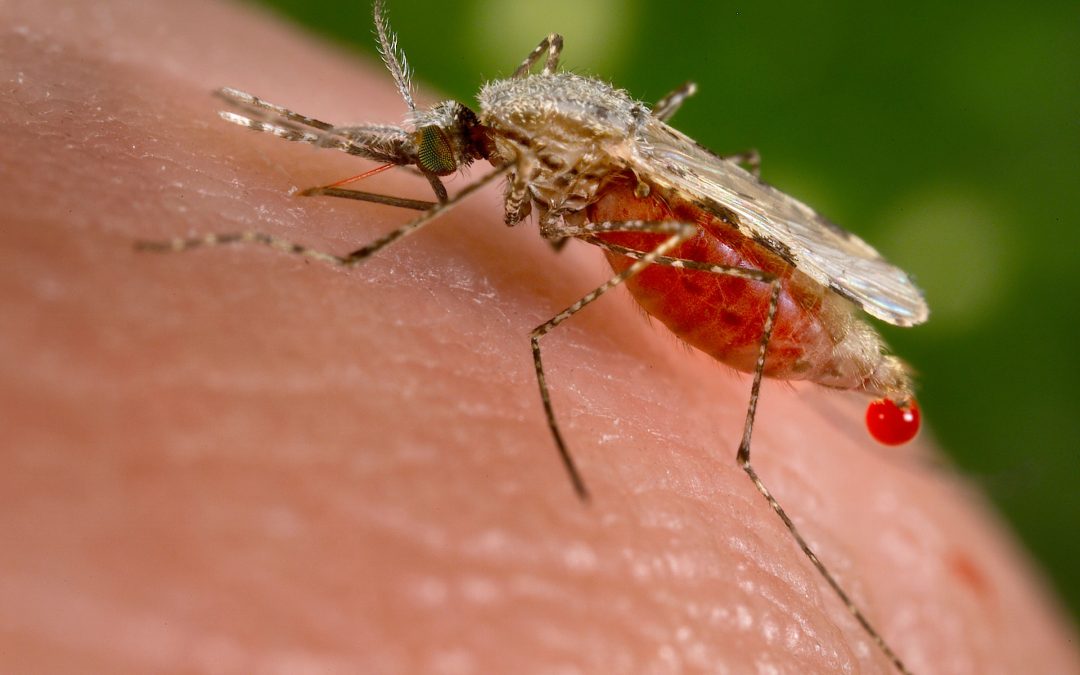I am a mosquito magnet. If you are with me in the great outdoors, chances are, you will not be bitten at all because those beastly little bloodsuckers will be hitching a ride on me. You could say I am a walking buffet for them. Because of this and my love of being out in nature, I tend to read anything I can find about mosquitos, why they choose who they choose, and ways to not get bitten as often. There is a plethora of advice to this end: do not wash before going out, do not eat bananas, wear light colours, stop breathing (this is because they are attracted to the CO2 that we release)…the list is ever-growing. I have tried it all and am now an expert in bug sprays and nets. A recent study published in Scientific Reports on May 1, 2018 has been gathering new information about these pests, so there may be a possibility for my relief in the future.
Beyond the fact that mosquitos are plain annoying; they are also the deadliest animal to humans. If you think that this is an over-reaction consider this fact; malaria alone is responsible for 400,000 deaths a year worldwide and this is only one mosquito transmitted disease. Mosquitos are host for a number of fatal or debilitating diseases such as yellow fever, dengue, and encephalitis and in North America they have been known to spread viruses including West Nile, Eastern equine encephalitis, and Zika. With this being said, research into mosquitos is most important.
Researchers at the University of Cincinnati have recently discovered that mosquitos also bite because of their thirst in times of drought. Until this study, it was believed that the female mosquito drank blood only to get the protein they need to lay eggs. These scientists are trying to figure out how often mosquitos bite to stay hydrated. For those non-etymologists, mosquitos can rehydrate through one of the following ways; ingestion of free water, nectar feeding, and hematophagy (the practice of feeding on blood).Nectar feeding differs greatly from one species to the next and if there is less free water available, mosquitos are forced to feed on blood to rehydrate.
I had always thought that mosquitos were so much more active in areas of higher humidity and/or swampy areas but this is proving to be false. “Disease modeling indicates dehydration bouts will likely enhance viral transmission. This dehydration-induced increase in blood feeding is therefore likely to occur regularly and intensify during periods when availability of water is low.”* This is not great news considering there are more and extended periods of drought around the world.
The researchers had new insights into their behavior when a batch of dehydrated mosquitos escaped from their confines into the lab. They proved to be quite aggressive in their pursuit of blood; all actively trying to bite.
The researchers had six different species sequestered in large mesh boxes with a source of water and nectar and a place to lay eggs so that they had a constant supply of test subjects. (This sounds like my darkest nightmare…boxes full of mosquitos…yuck.) Some test subjects were then dehydrated and studied to see how they would react. A receptacle of chicken blood with a very thin membrane over it (to simulate skin) was placed in with the dehydrated mosquitos. Normally, 5-10% of female mosquitos will feed at any given time but 30% of the dehydrated female specimens fed.
The researchers theorized that dehydration would lead to a suppressed metabolism, reduced activity, and decreased blood feeding but this proved to not be true. The conditions of dehydration actually increased the inclination of mosquitos to land and feed. Even when exposed to the same temperature and humidity, if there was a ready source of water available, mosquitos bit less.
A warming climate could create more frequent and longer droughts in areas of disease carrying mosquitos. If scientists can figure how mosquitos react to changing weather conditions, they should be able to better predict disease outbreaks. I don’t know about you, but I think the more we humans know about my own personal nemesis, the better.
–Janice Willson
* http://www.nature.com/articles/s41598-018-24893-z
Photo Source: CDC (Wikimedia Commons)

